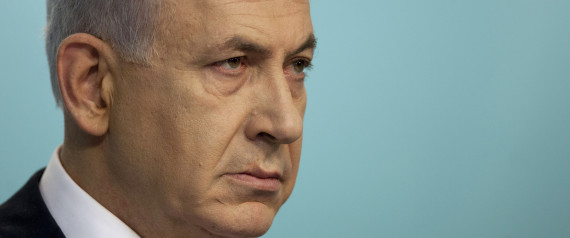JERUSALEM, Nov 19 (Reuters) - Israel on Wednesday approved the construction of 78 new homes in two settlements on West Bank land annexed to Jerusalem, likely to aggravate Palestinian anger at a time when violence has flared, including a deadly attack on a synagogue.
Jerusalem's municipal planning committee authorized 50 new housing units in Har Homa and 28 in Ramot, a municipal spokeswoman said. Israel describes those two urban settlements as Jerusalem neighborhoods.
Jerusalem has seen unrest in the past few weeks over access to the city's most sacred and politically sensitive site, holy to both Jews and Muslims. On Tuesday, two Palestinians killed four rabbis and a policeman at a Jerusalem synagogue, the worst attack in the city since 2008.
The Palestinians have also been angered by a recent slew of plans Israel has advanced for about 4,000 housing units on West Bank land annexed to the city.
The Palestinians want to establish a state in East Jerusalem, the occupied West Bank and the Gaza Strip, territories captured by Israel in the 1967 Middle East War. They fear the Israeli enclaves will deny them contiguous territory.
Nabil Abu Rdainah, a spokesman for Palestinian President Mahmoud Abbas said of the latest announcement: "These decisions are a continuation of the Israeli government's policy to cause more tension, push towards further escalation and waste any chance to create an atmosphere for calm."
Israel's settlement activities have drawn criticism from the European Union and from the United States, which like most countries views settlements as illegal.
U.S. State Department spokesman Jeff Rathke stressed Washington's "clear and consistent opposition to construction activity in East Jerusalem" and said: "During this sensitive time in Jerusalem, we would see such activity as inconsistent with the goal of lower tensions and seeking a path toward peace."
Israel, citing Biblical links to Jerusalem, says Jews have a right to live anywhere in the city. It regards Jerusalem, including parts of the city captured in 1967, as its "indivisible" capital. U.S.-brokered peace talks between Israel and the Palestinians broke down in April. (Additional reporting by Ali Sawafta in Ramallah, Writing by Ori Lewis; Editing by Jeffrey Heller and Peter Graff)
Original Article
Source: huffingtonpost.com/
Author: Reuters
Jerusalem's municipal planning committee authorized 50 new housing units in Har Homa and 28 in Ramot, a municipal spokeswoman said. Israel describes those two urban settlements as Jerusalem neighborhoods.
Jerusalem has seen unrest in the past few weeks over access to the city's most sacred and politically sensitive site, holy to both Jews and Muslims. On Tuesday, two Palestinians killed four rabbis and a policeman at a Jerusalem synagogue, the worst attack in the city since 2008.
The Palestinians have also been angered by a recent slew of plans Israel has advanced for about 4,000 housing units on West Bank land annexed to the city.
The Palestinians want to establish a state in East Jerusalem, the occupied West Bank and the Gaza Strip, territories captured by Israel in the 1967 Middle East War. They fear the Israeli enclaves will deny them contiguous territory.
Nabil Abu Rdainah, a spokesman for Palestinian President Mahmoud Abbas said of the latest announcement: "These decisions are a continuation of the Israeli government's policy to cause more tension, push towards further escalation and waste any chance to create an atmosphere for calm."
Israel's settlement activities have drawn criticism from the European Union and from the United States, which like most countries views settlements as illegal.
U.S. State Department spokesman Jeff Rathke stressed Washington's "clear and consistent opposition to construction activity in East Jerusalem" and said: "During this sensitive time in Jerusalem, we would see such activity as inconsistent with the goal of lower tensions and seeking a path toward peace."
Israel, citing Biblical links to Jerusalem, says Jews have a right to live anywhere in the city. It regards Jerusalem, including parts of the city captured in 1967, as its "indivisible" capital. U.S.-brokered peace talks between Israel and the Palestinians broke down in April. (Additional reporting by Ali Sawafta in Ramallah, Writing by Ori Lewis; Editing by Jeffrey Heller and Peter Graff)
Original Article
Source: huffingtonpost.com/
Author: Reuters

No comments:
Post a Comment